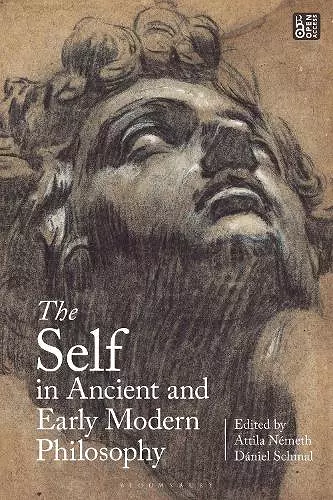The Self in Ancient and Early Modern Philosophy
Attila Németh editor Dániel Schmal editor
Format:Hardback
Publisher:Bloomsbury Publishing PLC
Publishing:15th May '25
£85.00
This title is due to be published on 15th May, and will be despatched as soon as possible.

The first book to examine concepts of the Self and individual identity in ancient and modern philosophy from a comparative and historical perspective, illustrating arguments, connections and intellectual tensions overlooked in contemporary scholarship.
This remarkable open access collection of scholarly studies by internationally distinguished experts explores the intricate and multifaceted philosophical concepts of the Self as understood in Graeco-Roman antiquity and the early modern period. The contributors weave together a rich tapestry of historical and comparative case studies that highlight tensions as well as connections between ancient and early modern perspectives on the Self. Ancient philosophers discussed include Plato, Lucretius, the Stoics, the Cynics, Augustine and the Neoplatonists. Early modern philosophers include Descartes, Gassendi, Pascal, Locke, Fénelon, Abbadie, Diderot and Kant. Through their analysis, this volume invites readers to embark on a philosophical journey that bridges two epochs, igniting a conversation about the very essence of human identity.
Central to this discourse are a series of thought-provoking chapters that scrutinise the profound influence of ancient thought on the philosophical and scientific theories of the Self that emerged during the 17th and 18th centuries. Whilst these studies offer fresh insights into particular eras of intellectual history and reassess the intricate threads connecting them, the volume as a whole aims to answer several pivotal questions: should we view references to ancient pagan or Christian authors as mere echoes of a cultural code or a fashionable taste for antiquity? Or do they signify a genuine re-engagement with authentic sources of inspiration? Do these intersections reveal opposition, tension or harmonious complementarity? In seeking answers to these questions, the volume stands as a testament to the enduring relevance of our philosophical legacy, and it will be of interest to philosophers, classicists, psychologists and historians of science and ideas.
The eBook editions of this book are available open access under a CC BY-NC-ND 4.0 licence on bloomsburycollections.com. Open access was funded by the National Research, Development and Innovation Office, Hungary.
ISBN: 9781350380370
Dimensions: unknown
Weight: unknown
296 pages